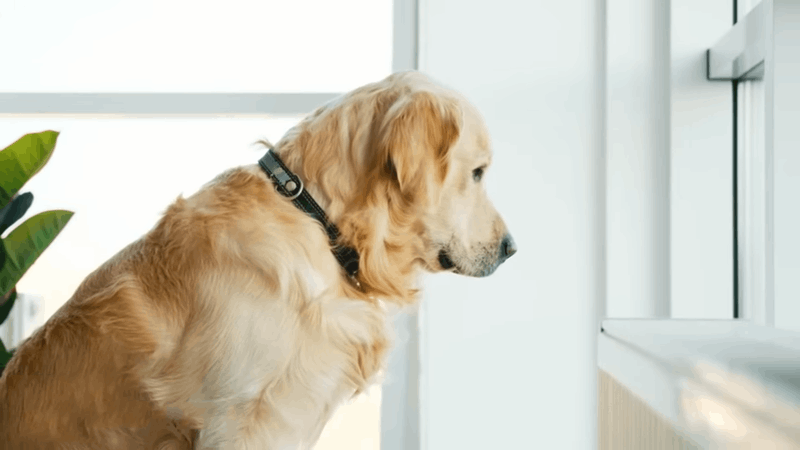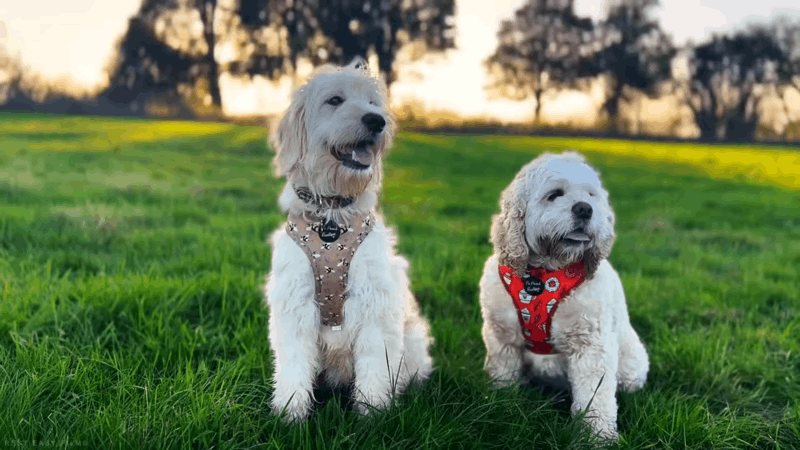No products in the cart.
As the popularity of CBD oil grows in the realm of pet wellness, “Can CBD oil cause incontinence in dogs” is one of the question has sparked curiosity among pet owners seeking to understand the potential effects of CBD on their canine companions.
In this blog, we’ll investigate the connection between CBD oil and canine incontinence, reviewing the pertinent research and emphasizing the need of making educated choices when thinking about CBD dogs as a therapy option.
Incontinence in Dogs and More Things We Should Know

The inability to control bowel or bladder movements in dogs causes inadvertent leaks of urine or waste. Incontinence is the medical term for this issue. This illness can affect any breed, size, or age of a dog, but females and older dogs are more likely to get it than other canines.
Incontinence can impair a dog’s quality of life and cause hygiene issues. The owner and the dog may both be disturbed by incontinence. Incontinence is a sign of a health issue rather than a disease in and of itself, but it often suggests one.
Addressing incontinence typically involves identifying the root cause and implementing appropriate management strategies, which may include behavioral modifications, medication, or, in some cases, complementary therapies like CBD. Consulting a veterinarian is crucial for accurate diagnosis and tailored treatment plans to improve the affected dog’s well-being.
Incontinence in Dogs Symptoms
Some common symptoms of incontinence in dogs include:
- Urine leaks: The most noticeable symptom is the involuntary leakage of urine, which can range from small dribbles to larger puddles.
- Frequent urination: Dogs with incontinence might need to urinate more frequently than usual.
- Wet fur or bedding: You might notice wet spots on your dog’s fur, bedding, or the areas where they rest.
- Licking or irritation: Dogs with incontinence might lick their genital area excessively due to discomfort from wetness or irritation.
- Strong urine odor: Incontinence can lead to a strong, lingering urine smell on your dog’s fur or in their living area.
- Urine scalding: In sensitive places, prolonged urine contact might result in redness, irritation, or even skin blisters.
- Awakening at night: Dogs that previously slept through the night might wake up to urinate if they develop incontinence.
- Accidents during sleep: Dogs might unintentionally urinate while sleeping, resulting in wet spots in their resting areas.
- Fecal incontinence: In addition to urine, some dogs might experience difficulty controlling their bowel movements, resulting in fecal leakage.
It’s crucial to remember that not all cases of incontinence are the same and that these symptoms might indicate a range of underlying causes.
If your dogs exhibit any of these signs, you should take them to the doctor for a thorough examination and diagnosis. Your veterinarian will be able to recommend a course of treatment after identifying the underlying cause of the symptoms and taking into consideration your dog’s medical requirements.
Causes of Incontinence in Dogs
Incontinence in dogs can be caused by various underlying factors. Here are some main factors that can contribute to canine incontinence
- Hormonal changes: Fluctuations in hormones, especially in spayed female dogs, can weaken the muscles controlling the bladder, leading to incontinence.
- Age-related changes: As dogs age, their muscle tone may decrease, affecting bladder control and leading to leaks.
- Urinary tract infections (UTIs): Infections in the urinary tract can irritate the bladder and cause dogs to urinate involuntarily.
- Neurological issues: Conditions affecting the nervous system like spinal cord injuries or nerve damage, can disrupt the communication between the brain and bladder muscles.
- Anatomical factors: Certain breeds are predisposed to anatomical issues, like a small bladder or poor sphincter function, which can contribute to incontinence.
- Medications: Some medications may relax the bladder muscles, leading to leakage.
- Chronic medical conditions: Underlying health problems, such as diabetes or Cushing’s disease, can affect urinary control.
- Obesity: Weight gain in dogs can put a strain on the bladder and cause incontinence.
- Stress or anxiety: Emotional stress or anxiety can impact a dog’s ability to control its bladder.
- Dietary factors: Certain foods or dietary imbalances might contribute to urinary issues and incontinence.
A thorough examination by a veterinarian is so important to diagnose the specific causes of incontinence. The best course of action to manage and resolve the problem can be suggested by your veterinarian. Treatment choices will vary based on the underlying cause.
How to Treat Incontinence in Dogs?

Treating incontinence in dogs involves addressing the underlying cause and implementing appropriate strategies to manage the condition. Consulting a veterinarian is crucial for accurate diagnosis and tailored treatment plans. Medications, hormone therapy, dietary changes, weight management, behavioral adjustments, and in some circumstances, surgery, may all be used as treatments, depending on the underlying cause.
Regular veterinary check-ups and follow-up sessions are necessary to track development and make any modifications to the treatment plan. Many dogs with incontinence can improve their bladder control and quality of life with the right care and instruction.
Home Remedies for Dog Incontinence
While it’s important to consult a veterinarian for proper diagnosis and treatment of dog incontinence, there are some home care practices that can complement medical treatment and help manage the condition. Here are a few home remedies that might provide some support:
- Scheduled bathroom breaks: Establish a regular bathroom schedule for your dog, including frequent outdoor breaks to relieve themselves. This can help reduce accidents and prevent bladder overdistension.
- Proper hydration: To keep properly hydrated, make sure your dog has access to fresh water at all times. Proper hydration supports urinary health.
- Healthy diet: Feed your dog a balanced and appropriate diet that supports urinary health and maintains a healthy weight. Consult your veterinarian for dietary recommendations.
- Weight management: If your dog is overweight, working with your veterinarian is necessary. It’s an effective way to create a weight management plan through portion control and regular exercise.
- Comfortable resting area: Provide your dog with a comfortable and easily accessible resting area to prevent unnecessary stress on their bladder.
- Outdoor access: Make it easy for your dog to access the outdoors for bathroom breaks. Install a doggy door or use training techniques to signal when it’s time to go out.
- Hygiene and cleaning: Keep the genital area clean and dry to prevent skin irritation or infections. Use mild, pet-safe cleansers.
- Environmental enrichment: Reduce stress and anxiety through environmental enrichment and positive interactions. A calm and happy environment can have a positive impact on bladder control.
- Natural supplements: Some natural supplements, such as cranberry extract or herbal remedies, might offer mild support for urinary health. Consult your veterinarian before introducing any supplements.
- Training and behavior modification: Work on training techniques that reinforce proper bathroom behavior and signal when it’s time to go outside.
Remember that these home remedies are supportive measures and should not replace proper veterinary care. Incontinence can have several underlying reasons, so it’s crucial to consult a veterinarian for a precise diagnosis and a thorough treatment regimen suited to your dog’s requirements.
Incontinence Medication for Dogs
When prescribed and managed by a veterinarian, incontinence drugs for dogs can be safe and helpful. These drugs have been created expressly to treat the underlying causes of incontinence and enhance bladder control. There are important considerations to take into account with any medical operation, though.
- Veterinary guidance: Incontinence medications should only be administered under the guidance and prescription of a veterinarian. A proper diagnosis is crucial to determine the cause of incontinence and the appropriate medication.
- Side effects: Like any medication, incontinence drugs can have potential side effects. The right guidance will be provided by your veterinarian to avoid these negative effects and ensure your dog’s general health.
- Dosage and administration: Correct dosage and administration are essential for safety and effectiveness. Follow your veterinarian’s instructions precisely and avoid adjusting the dosage without consulting them.
- Interaction with other medications: Inform your veterinarian about any other medications, supplements, or treatments your dog is receiving. Some medications might interact with incontinence drugs, affecting their efficacy or safety.
- Long-term use: Continence drugs may occasionally require long-term use. The right period of treatment can be provided by a veterinarian depending on the dog’s condition.
- Alternative approaches: Depending on the cause and severity of incontinence, alternative treatments or complementary therapies might be considered alongside or instead of medication. These could include dietary changes, behavioral modifications, or natural supplements.
Ultimately, the safety of incontinence medications for your dog depends on proper veterinary diagnosis, prescription, and monitoring. Working together with your vet will help you ensure that your dog receives the best care possible while reducing any hazards.
Can CBD Oil Cause Incontinence in Dogs?

There is insufficient evidence from science to support the idea that CBD oil directly contributes to canine incontinence. CBD is a cannabis-derived chemical that has garnered recognition for its possible therapeutic properties in both people and dogs. Many pet owners use CBD oil to manage various conditions in dogs like anxiety, pain, and seizures. However, its impact on urinary control is not well studied.
A veterinarian should be consulted before making any decisions if you’re thinking about giving your dog CBD oil but are worried about possible adverse effects including incontinence. The vet can offer you specialized guidance based on the health history, present medications, and particular requirements of your dog.
Keep in mind that the use of CBD products for pets is a relatively new area of research, and developments might have occurred since my last update. For the correct information regarding the usage of CBD oil or any other supplements for your dog’s health, always rely on reputable, recent sources and see a veterinarian.
CBD and Incontinence: What is the Relationship?
The relationship between CBD and incontinence in dogs is an area that requires further investigation. While CBD has been studied for its potential therapeutic effects in various health contexts, its specific impact on canine urinary control is not yet fully understood.
Theoretically, CBD’s anti-inflammatory, muscle-relaxing, and potential anxiety-reducing properties could contribute to addressing factors related to incontinence. However, due to the limited scientific research on this topic, it’s essential to approach CBD use cautiously.
Consulting a veterinarian is crucial before considering CBD as a treatment for incontinence in dogs. A veterinarian can provide personalized guidance based on your dog’s health status and needs, helping you make informed decisions regarding the potential use of CBD for incontinence management.
Can CBD Treat Incontinence in Dogs?
CBD has been explored for its potential benefits in managing various health issues in dogs, including incontinence. Some pet owners and veterinarians have claimed successful results even though the study is still underway. CBD’s anti-inflammatory and muscle-relaxant properties could potentially help address underlying causes of incontinence.
However, it’s essential to consult a veterinarian before using CBD as a treatment, as individual responses may vary and proper diagnosis is crucial for effective management of incontinence in dogs.
Conclusion
“Can CBD oil cause incontinence in dogs?” While CBD oil is renowned for its potential therapeutic benefits in canines, the current body of scientific knowledge does not substantiate claims that it directly leads to incontinence in dogs. Pet owners are encouraged to consult veterinarians before considering CBD oil for their dogs, as professional guidance ensures informed decisions regarding its usage and its hypothetical association with incontinence.
Hello, I am Hazel Bennett, an experienced copywriter specializing in the fascinating topic of CBD for dogs. With a passion for pet wellness and extensive knowledge of CBD’s potential benefits, I am here to provide you with informative and engaging content.



